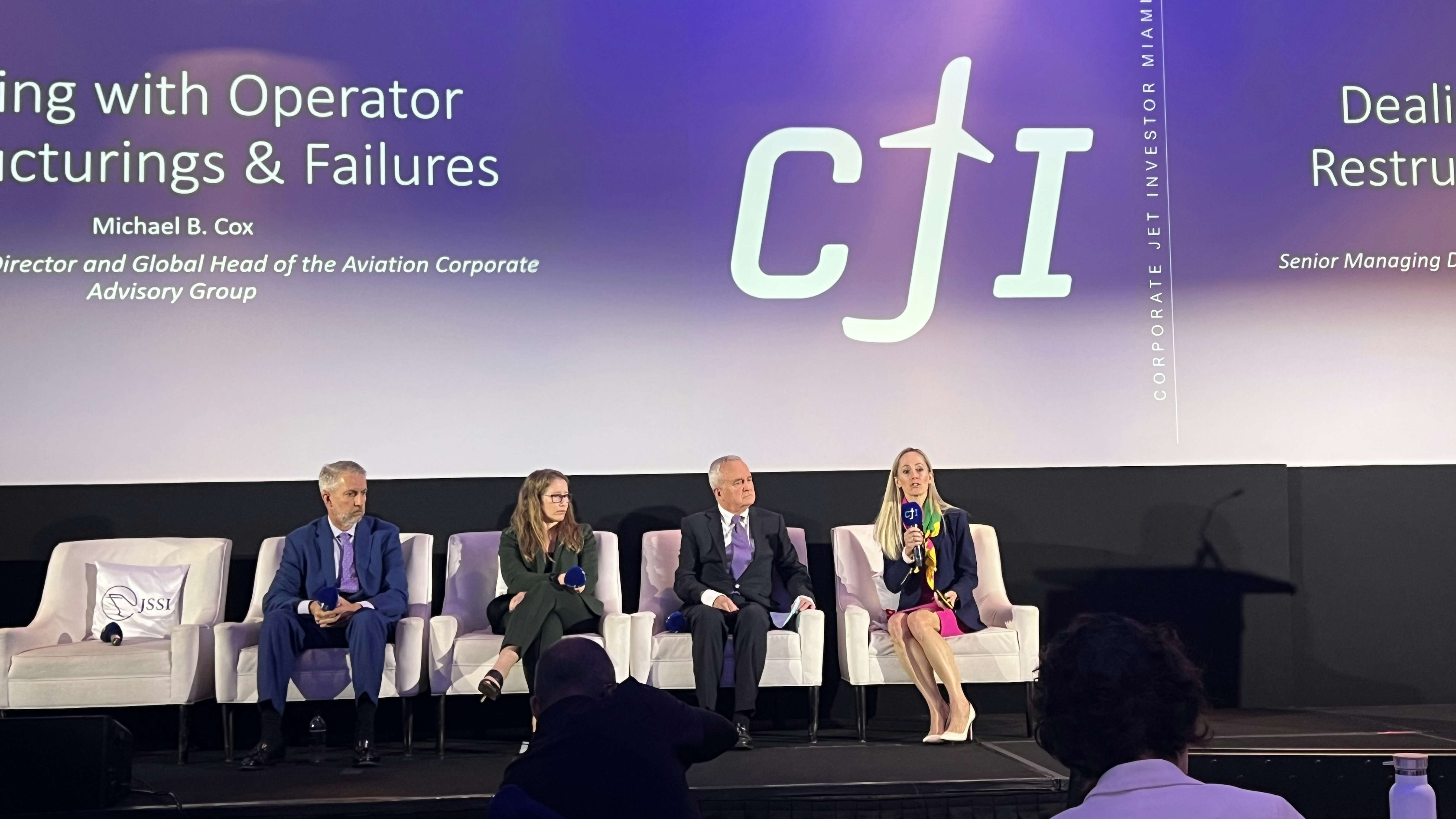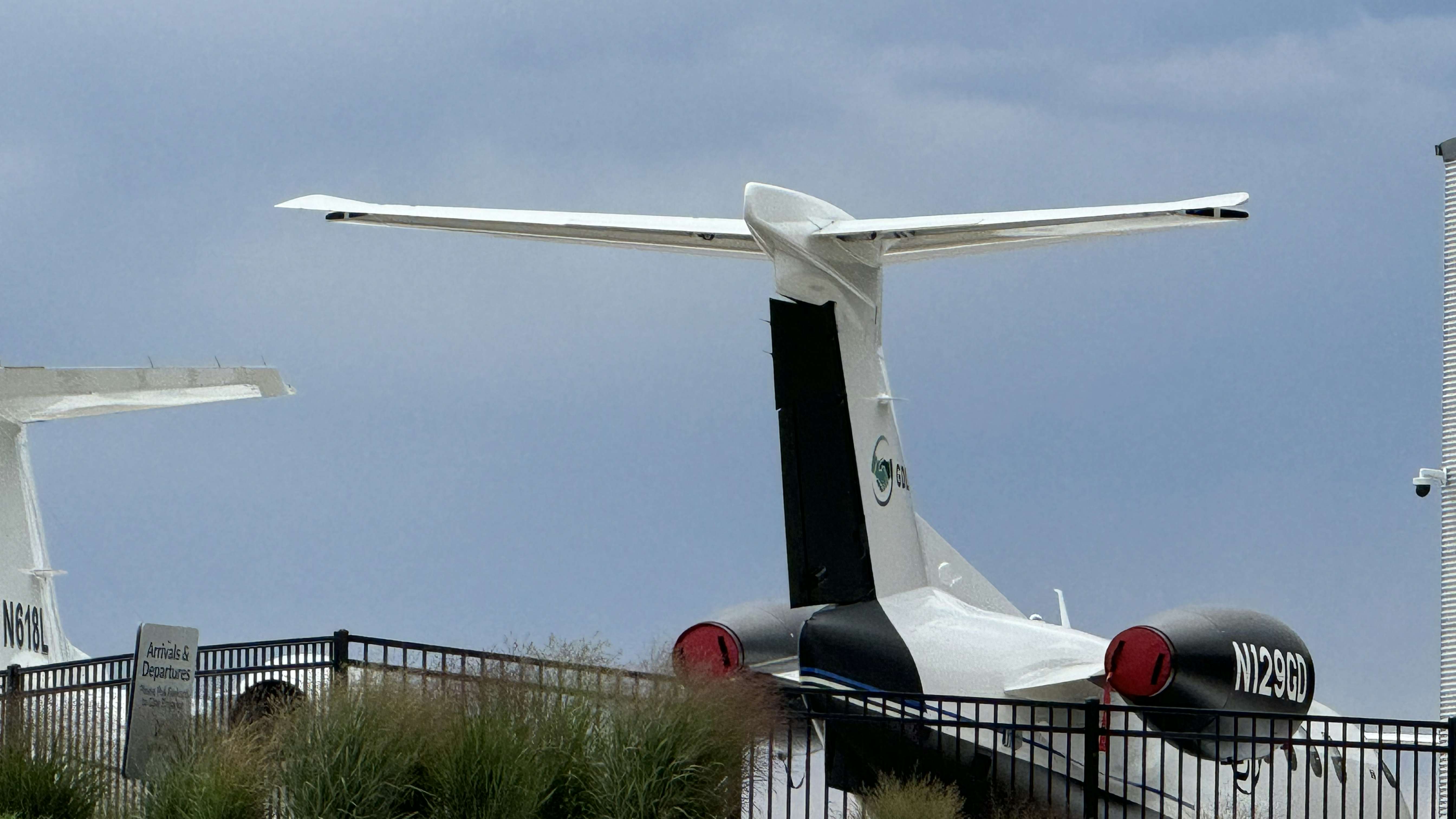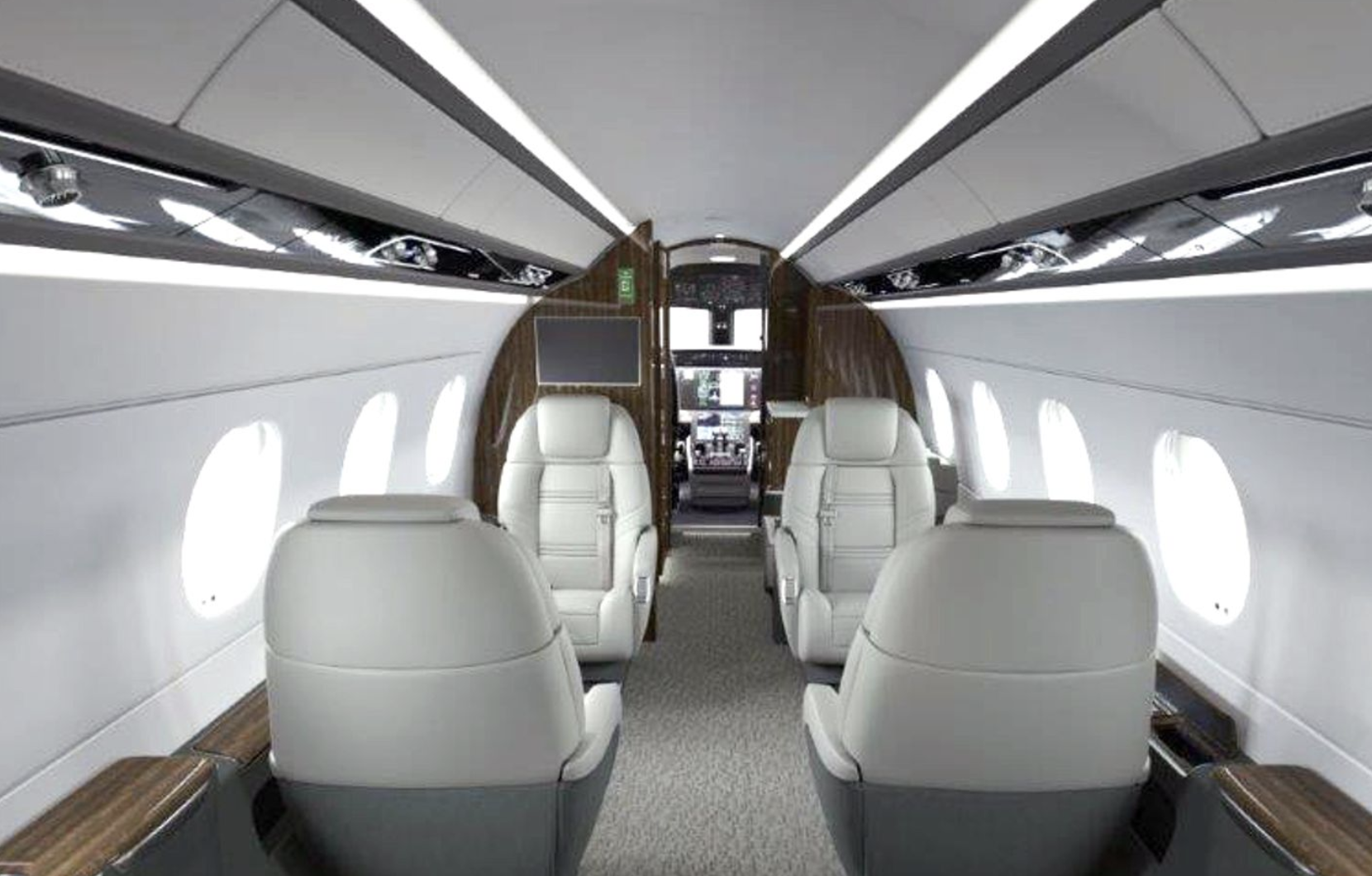On July 4, 2025, President Donald Trump officially signed the One Big Beautiful Bill Act (H.R.1) into law, and it has quickly become the headline for sellers of private jets.
One subscriber of Private Jet Card Comparisons tells us emails pitching him to buy a private aircraft are now outpacing opportunities to help Nigerian billionaires transfer vast amounts of money.
The new U.S. law contains various changes to tax and spending policies nationwide.
The aspect of this bill that has launched hundreds of email solicitations from private jet marketers is the return of 100% bonus depreciation.
As a result, private jet ownership has once again become a potentially powerful tax planning tool for companies, business owners, and high-net-worth individuals.
This change, which allows qualifying private jet purchasers to fully depreciate new and used aircraft, including fractional shares, in the year of acquisition, has spurred additional interest across the business aviation industry, where concerns about tariffs had been causing consternation.
Aviation tax and legal experts say that although the incentive will be popular among qualifying aircraft owners, it is far from automatic.
Before you spend a lot of time getting excited, here’s what you need to know.
What Just Happened?
Under the recently signed Big, Beautiful Bill (H.R.1), 100% bonus depreciation has officially been reinstated.
This marks a significant shift for private jet owners, who can now depreciate new and used aircraft in the year of the new buyer’s acquisition.
The first requirement to be aware of is that the aircraft must be delivered and operational in the tax year, not just signed into an ownership contract.
Put simply, it needs to have made at least one flight.
In general, beginning with purchases on or after January 20, 2025 (the day 47 was inaugurated), the new law allows the full purchase price of an aircraft to be written off in the year of acquisition.
This is an aggressive tax incentive that saves cash when buying new and used aircraft in the year of acquisition.
The new law is especially attractive for buyers seeking to offset substantial income in 2025.
It reverses the bonus depreciation rules that were expanded under the Tax Cuts and Jobs Act (TCJA), which was signed into law in 2017.
TCJA included a bonus depreciation phase-out schedule that began in 2023.
The new schedule replaces the phased-out depreciation percentages of 60% in 2024 and 40% in 2025.
The new bill reinstates 100% bonus depreciation in 2025 as noted.
Is Bonus Depreciation For You?
The initial market response from those who sell private jets and many others in the industry was that they expected the new law to reignite market demand for both new and used aircraft.
Many industry experts anticipate a significant surge in aircraft purchases in Q3 and Q4 of this year, as buyers rush to finalize deals before the end of 2025.
However, some industry experts have expressed caution about purchasing aircraft simply because of the 100% bonus distribution.
At the recent Corporate Jet Investor Bonus Depreciation Town Hall, Ryan DeMoor of MySky stated,
“Tracking needs to happen during the life of that asset. It is not a year‑one thing, it is a multi‑year thing.”
This means that owners are required to keep detailed flight logs, document every business use of their aircraft, and plan for ongoing compliance.
Logs should include all passengers, detailing what everyone was doing when you landed, essentially documenting business activities for all parties on the aircraft, as your assistant may keep your day planner.
Not using the aircraft for at least 50% of business use, with exceptions, may exempt you from qualifying altogether.
Working With Professionals
Experts say lawyers, tax specialists, and consultants will be in high demand.
They say this is not a do-it-yourself exercise.
Angel Houck of Houck & Christensen CPAs, a leading aviation tax consultant firm, told the CJI webinar listeners, “If you want bonus depreciation, there is a lot of structure and planning to begin with.”
David Shannon of Lewis Brisbois Bisgaard & Smith also spoke at the CJI Town Hall, adding, “This is an excellent development for our industry. Now that there is tax certainty, it will help people plan (more effectively). If you have business use and you really need to use an aircraft, this is an excellent tool.”
In general, bonus depreciation is a powerful tool when utilized for genuine business needs.
The CJI Town Hall emphasized that thoughtful planning and compliance will separate winners from tax pitfalls.
Bonus Depreciation No Nos
Shackelford, McKinley & Norton, LLP attorney David Mayer, in a column for Aviation International News, noted, “An owner cannot take depreciation deductions for personal use, including entertainment, amusement, or recreation.”
“If you have some entertainment usage on that aircraft, in that first year you have bonus, in that first year that’s going to be a huge number so if you are expecting an $80 million deduction but you’re going to use the airplane half the time for entertainment use, you’re not going to get the $80 million deduction,” DeMoor says.
He emphasizes that bonus depreciation is all about lowering the amount of income on which you pay taxes.
However, not all revenue is created equal, something Houck, Shannon, and DeMoor say is critical in calculating bonus depreciation.
DeMoor underscores, “When I sell the airplane…I have to pay taxes on the gain from the sale of that aircraft. Ultimately, you are going to take the same amount of depreciation no matter what.”
Houck also adds, “It’s an incentive to buy things… It’s not a windfall. It’s not free assets or free airplanes. What it is, is a really great savings for the cash flow upfront to help purchase the aircraft as long as long as it’s a business used aircraft.”
A Forbes analysis notes, “Unlike standard business accounting procedures in which capital investments are spread across multiple years and are never fully written off, the full value of qualified property could be written off in year one.”
Getting 100% Bonus Depreciation
The 100% bonus depreciation in year one is based on 100% business use in year one.
But you plan to fly privately for the holidays.
That could mean chartering flights or buying a jet card for personal travel this year.
That would ensure your private jet is used exclusively for business.
“There are a lot of hoops and hurdles,” Houck emphasizes.
If it isn’t “predominantly” used for business in subsequent years, the bonus depreciation needs to be recalculated.
This can be a significant pitfall if you are expecting to sell your company.
Use in subsequent years may not meet the thresholds for business usage.
READ: Private Jet Owners speak about the good and bad of ownership
I Want To Buy A Private Jet!
Multiple experts say bonus depreciation is not a reason to buy an aircraft.
If buying, owning, and operating a private jet didn’t make sense in the first place, don’t do it because of bonus depreciation.
What’s the biggest complaint from first-time private jet buyers?
They didn’t fully understand the costs associated with private jet ownership.
They also failed to understand that owning a jet doesn’t make it available 365 days per year.
Private jets undergo scheduled and unscheduled maintenance multiple times per year.
There can also be issues with pilot availability.
Over 50% of subscribers to Private Jet Card Comparisons who own jets also have jet cards.
One does not necessarily replace the other; they are not mutually exclusive.
Flexjet Chairman Kenn Ricci tells Private Jet Card Comparisons, “Bonus depreciation has an impact. Remember, with our product, you can lease it or buy it. With bonus depreciation, we’ll be 60% to 70% buy and 30% lease. Without bonus depreciation, it’s 50/50.”
Asked how many new customers he expects to come on board because of bonus depreciation, Ricci said, “Zero.”
READ: Buying a Private Jet step-by-step for first timers
What’s Your Next Move?
Guardian Jet’s Matt Walter put it this way.
He told CNBC, “If you planned to upgrade your plane in 12 months, maybe you do it in six months instead.”
In other words, if you want to save yourself a lot of time, think of it this way.
Bonus depreciation is something to get excited about if you are genuinely in the market to buy a private jet.
Bonus depreciation only works if there is significant business use that can withstand an IRS audit.
If that’s you, hire an aviation attorney.
The attorney can help assemble a team of experts.
They will help you structure the acquisition and set you up to avoid potential pitfalls.
Experts say that if you plan to buy a private jet this year, it’s best to get an early start.
There are over 40 steps involved in buying a jet.
The longer you wait, the more you will be caught up battling to secure spots for pre-buy inspections.
You may also struggle to secure the professionals you need to ensure a smooth flight.
Our best advice to you is to watch the replay of the CJI Town Hall here as a starting point.
Doug Gollan contributed reporting to this story.












